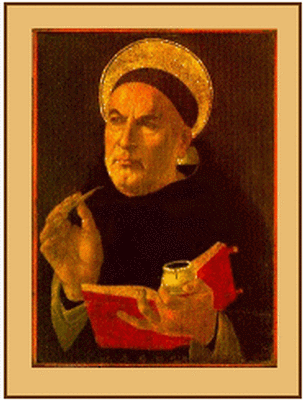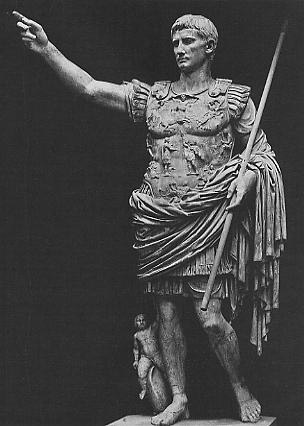
I'm back! My return was spurred on by the temperature outside: it's too cold to go to school right now and all my stuff is at school. So, I thought I would post something, finally. And because Matt told me to make a glorious return to the interwebz.
This is the text of an essay I wrote for a philosophy seminar. It's on Wagner and myth, framed within Lacoue Labarthe's views on myth. Myth, for Lacoue Labarthe, has the power to found a people; it gives them types to emulate and an ideal which grounds the people as a whole, at least in the case of the Greeks. I examine whether Wagner's Ring Cycle could found the German people in the same way Greek myths did for the Greeks.
Abbreviations:
HPP: Lacoue Labarthe. Heidegger and the Politics of Poetry.
NM: Lacoue Labarthe and Nancy, Jean Luc. The Nazi Myth
GI: Wagner, Richard. The Greek Ideal
To start off, I will examine “the mythic” in general, specifically what it does and what its character is. Plato is the best place to start in the examination of myth. In the Republic, Plato banishes most poets and forms of myth on the grounds that they are twice removed from the Forms and thus cannot hold a claim to truth. There is also a second argument Plato gives: that some poets present images of the gods and of heroes which are not “morally sound”, that is, they present stories which would be a bad influence on the people of his city. In other words, these mythological stories present unsound types for people to identify with; Plato wants to give the people of his utopian city examples of the best types to follow. Mythology, then, in its essence, is characterized by types/images. Moreover, the people of the city “look up” to these types that are presented through myth; they relate to them: in other words, they form themselves as a people by the “imitation” of the characters presented in mythology. In Heideggerian terms, a people are grounded as a historical people through mythology; mythos gives a people to themselves, such that they can exist historically. Due to the fact myth functions in this way, art (as mythos) has a close connection with the political (the polis/demos/Volk), insofar as it is myth which form the demos in the first place. Myth makes the political, insofar as it makes the demos, possible. The “aim” of myth is the bringing together of a people.
Turning now to Wagner, we will see how this plays itself out in his operas. I will show what Wagner inherits from the Romantic tradition, insofar as it is derived from a Greek tradition, how this plays itself out in his operas, and then examine whether Wagner’s Ring Cycle, insofar as it is “mythic” can contribute to the bringing together of the German people. The three points are drawn from
Heidegger and the Politics of Poetry.
Lacoue Labarthe believes that Wagner inherits the idea that the work of art is founded upon myth, and that myth is the only thing which can ground a people, that is, give a people language and figures with which it can identify itself. This notion can be traced through the threads of Romanticism all the way back to a Greek origin. In the 18th century, the German people were without a real identity; there was nothing inherently German to which the German people could relate to. Part of the project of Romanticism was to find something to ground the German people and thus found the German people as such. The Romantics looked back to Greece in order to do this, however, they latched onto a different stream of Hellenism than, for example, the French did. Instead of taking up the Apollonian classicism of the French, which is characterized by sereneness, beauty, etc, they appropriated a more “primitive” Greece, the mythical Greece of secret rites and dark superstitions. In doing this, they were, in essence, looking for a “type” (re. Myth) to which the German people could relate and thus be founded as a historical people.
One can easily see how Wagner’s works are founded upon myth. In his magnum opus, Der Ring des Nibelung, Wagner pulls out threads from a myriad of Old Norse and German mythology in order to create a coherent, 17 hour long, whole. Tristan und Isolde is based upon a German myth, as are Lohengerin and Tannhauser. It is the Bayreuth Festival which was to be the medium through which these myths are presented, and consequently found the German Volk. Lacoue Labarthe notes that there is a parallel between the Bayreuth Festival and the City Dionisia in Athens, where the tragic plays were presented. (NM 303) Ideally, the presentation of the myths to the people would ground them historically, and they can thus exist as a historical people. The polis, as a work of art, would be partly created through these festivals, both Bayreuth and the City Dionisia.
I shall now turn to the “origin” of the Gestamkunstwerk, which Lacoue Labarthe thinks is Greek tragedy. Greek tragedy is composed of two main elements: the actors and the chorus. The chorus, within the context of the action of the play, was merely there as a comment on what was being done by the actors, and it did this through singing, dancing, and music. This is the “Dionysian” element in Greek tragedy that Nietzsche, as well as those German Romantics who sought an alternative to the “Apollonian” classicism of France, took hold of. In other words, the Greek tragedy was, in a way, a Gestamkustwerk, in the way that Wagner defines it: a total work of art, which incorporated music, action, and singing on stage. All these elements were required in order for a Greek tragedy to be as such; they are necessary conditions for a play.
How, then, do Wagner’s operas parallel the Greek tragedy in structure? As we have seen, the Greek tragedy is composed of a number of different elements which come together to form a coherent work. These are all present in Wagner’s operas, though some appear in a slightly different guise. It goes without saying that there is singing in opera. It is the music that appears in a different, though, related form. For, there is no “chorus”, conceived of as a group of people who dance and sing to music, in Wagner’s operas: instead, there is only music. The orchestra functions as the classical chorus instead of a group of actors on the stage who comment on the action. The function is the same, but the form it takes is different. Moreover, in some Greek tragedies, Aeschylus in particular, the chorus is always present, from basically the beginning of the play to end. The orchestra in Wagner, as the action unfolds on stage, provides a continual comment on what is going on; this comment is achieved through his use of Leitmotivs, which give us a musical “guide” to what is happening on stage. Given the action on stage, a particular Leitmotiv may take on a different guise: it may move into a major or minor key, be inverted, etc. All this gives us a running commentary regarding the appearance of characters, themes, and objects, or serves to “set the mood” of a particular scene. In the second section of the paper, we will say more regarding the function of the chorus/orchestra in Wagner and in Greek tragedy and thus will lay the matter aside until then.

Lacoue Labarthe lists the third thing Wagner inherited from the Romantics as the notion that Greek art is based upon the distinction between Apollo and Dionysus. Interestingly, in his writings Wagner has little to say about Dionysus, and instead focuses on the role Apollo plays. His work The Greek Ideal has some passages which sound rather like Lacoue Labarthe: “It was Apollo…who…had proclaimed to questioning man the fundamental laws of the Grecian race and nation, thus holding up to those involved in passionate action the peaceful, undisturbed mirror of their inmost, unchangeable Grecian nature…” (GI 78)6. He then moves to connect the tragic poet with Dionysus: “Thus, too, inspired by Dionysus, the tragic poet saw this glorious god…” (GI 78). He goes on to say that the “spontaneous” elements of art were “joined to speech”; these spontaneous elements being the Dionysian, and the speech being Apollonian “representation” . Given Wagner’s explicit indebtedness to the Greeks7, it would be conceivable that he thought of his own work as combining these two facets of the classical world, the Apollonian and the Dionysian, even though he didn’t explicitly state that he was doing this. To my knowledge, this is the extent of Wagner’s appreciation of the Apollo/Dionysus distinction in Greek tragedy.
Now that we have seen how Wagner’s project is has three main characteristics, that it hinges on the mythological, is Greek in structure, and carries on the same Romantic project of founding the German people. We will examine whether the Ring Cycle can ground the German peoples in the same way Greek myths did. I will follow Lacoue Labarthe in arguing that Wagner’s Ring cannot carry out the same mythic function as the Greek myths did, due to the privileged position music holds at the expense of poetry (myth) in his operas. Then, I will treat an objection, which will argue that in fact the orchestra is necessarily secondary to the music given its correlation with the classical chorus, and respond to it.
In The Nazi Myth, Lacoue Labarthe mention Wagner and how he “aims to unify the German people through celebration and theatrical” ceremonies. (NM 303) There is a parallel, which Lacoue Labarthe notes, between the Bayreuth Festival and the City Dionysia, the festival where Greek tragedies were performed in Athens. The function of the two is essentially the same: to bring people together in an experience of their mythology, such that they become (re)grounded, or “reminded of their roots”, so to speak. We have seen that Wagner’s Ring Cycle is a mythology, and is founded on a Greek model, so, can it ground the German people? In Lacoue Labarthe’s opinion: no. For, in Wagner’s works the music is subservient to the poetry (myth) and thus the myth cannot carry out its true function of grounding a historical people. (HPP, 32) Wagner explicitly states that the aim of his operas was a “communal fusion”, and that this fusion was to be brought about by music. He was trying to appeal to the “emotional” aspect through his music (HPP, 32), in order to bring people together in some sort of “aesthetic rapture”. Wagner is aiming to create a community of sorts, and this is laudable; however, he is going about it in the wrong way, for only myth can truly create a Volk. However, this fusion occurs through the music and not through the myth, like it should. He privileges the music at the expense of what is truly able to ground a historical peoples: myth.
An interesting counter-argument to can be based upon a point raised in the first section of the paper: Wagner conceives of the orchestra as a parallel to the classical choruses of Greek tragedy. The choruses served merely to comment on the action which was unfolding on stage, and thus did not over power the poetry, or the action onstage. They were always present, and always there for comment, but never took a main role. One could, by analogy, say that the orchestra could not possibly overpower the poetry, given its secondary status as a mere comment on the action. The Wagnerian orchestra is a comment, a guide to what is happening throughout the course of the opera: the same way the tragic chorus tells us what to think about the action, the Wagnerian orchestra gives us hints as to how to conceive of what is happening on stage though Leitmotivs and the reworking thereof. As a consequence, poetry is not secondary to music, and Wagner’s mythology can carry out its proper function.

In response I would say two things. First, that a problem arises when mythic types are imposed upon a people, instead of being “poetically” created by a people. Wagner, in essence, is imposing mythological types in his Ring Cycle. It was not the case that the Germans of the 19th century created the mythic characters of Siegfried and Sigmund, Brunhilde, the Nibelungs, Wotan and Loki. Instead, Wagner appropriated these myths from antiquity, reshaped them in order to create the story that became the Ring cycle, and then thrust them upon the Germans. Even though they are German myths (and what is more, the largest source of material for the Ring came from Scandinavian mythology, which was partly connected with the German myths) they are nonetheless being imposed upon the German people, instead of being created.
Secondly, I would say that, even if the orchestra qua chorus has a secondary status, this is still the central element to Wagner’s project of “communal fusion”. Given how Wagner has framed his discussion, it seems that the music is the only thing which can “bring people together”, since he is appealing to them on an “emotional” level. Wagner is not aiming for a founding in the true sense of the word and, even if he were, his operas could not carry this out due to the fact that his mythological elements are not really originary myths in the same way Greek ones were.
On the basis of the analysis of Wagner’s operas, I would come to the following conclusion. His operas are quite Romantic (re. Greek) in form, and given the project of Romanticism, namely founding the German people, it would seem prima facie that Wagner would be able to ground the Germans historically. However, due to the secondary status of saying (re. the mythic elements) in his operas, he is not able to fully carry out this project. For only myth can truly found a people and if something else holds a privileged position over it, the mythic loses some of its power.









